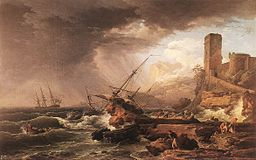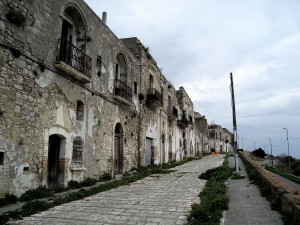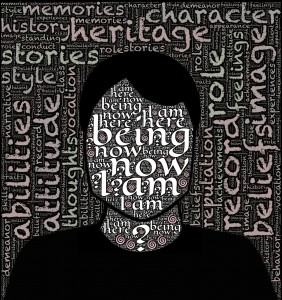As S walks down an alley at the Old Quarter, he is seen by a wide-hipped woman. Thinking that S might be looking for a room, the woman hangs a Rooms sign outside her house and repeatedly adjusts its position.
Page 5 describes from an omniscient view that the woman is the wife of an ill-fated sea captain, who left years ago for a remote land “where the hills were said to be bursting with silver, the valleys teeming with exotic fruits and game.” After her husband fails to return as expected, the woman rents rooms to lodgers in order to feed her sons.
In this page, VMS portrays images that are drastically different from each other. The depiction of the remote land of wealth and harvest contrasts directly with the ship wreckage and the remains of the husband’s bone, as if VMS is highlighting the differences between the ideal and the real world and, at the same time, denouncing the comfortable illusion that we constantly use to deceive ourselves. Furthermore, VMS also presents a contrast between the omniscience of the narrator and the not-knowing of the lady and her children, a dramatic difference that seem to imply the blessing of ignorance and the curse of knowing. VMS’s diction is also worth studying. He names the location of the shipwreck “Cape Fortuna,” invoking a sense of irony.
S’s disorientation in the geometrically intrigued and seemingly flawed Old Quarter, as well as the woman’s questioning about whether the city is crooked, are noted in the website “Thoughts on ‘S’.” “This scene correlates to S‘s disorientation beginning with his awakening on the streets of the Old Quarter, his struggle to understand his identity, his capture and “imprisonment” aboard the ship, the floating stars above and the ‘drifting twins,’ and the waterspout storm that destroys the ship and leads him to the city of B—.” writes the author of the blog.
Eric’s pencil-colored notes in the margins point out that the ravenous sons and the dead husband demonstrate a succession of the family line, a possible reference to the succession of Bouchards’ despicable business and monopoly. Eric also comments on VMS’s sentence “This is what happens, of course: men get lost, men vanish, men are erased and reborn”, noting that it may imply VMS’ fluid identity–erasible, unable to track, and capable of regenerations.
In the margin, Jen questions Eric’s real identity. After checking the PSU directory, Jen finds out that Thomas Chadwick (the identity Eric uses to cover his trace ) is a geology student who does not work with Moody. Feeling betrayed, she purposefully ignores Eric’s request to write back.
“How can I believe you’re who you say you are?”
says Jen.
In response, Eric says:
“I didn’t say I was anyone.”
Yet he confesses to be disappointed to find nothing from Jen when he picks up the book again. Jen sends an email to Eric, who later asks her not to do so because his account was hacked.
“Someone was trying to steal my work. More than one person, actually.”
Jen then pursues and asks Eric whether he is sure that she is not stealing his work. While the question is left unanswered for some time, in notes that are penned later (denoted in different colors), Eric admits that communicating with Jen is probably the “biggest, dumbest” risk he has ever taken. The conversation on this page demonstrates that the relation between Jen and Eric has deepened and mutual trust has been established.



